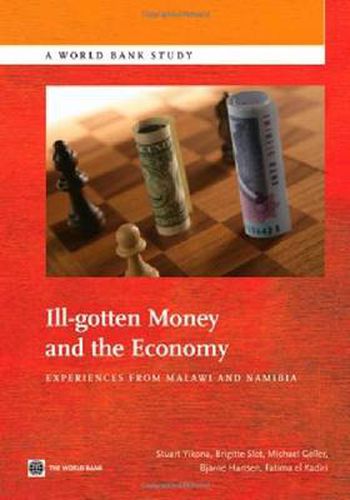Readings Newsletter
Become a Readings Member to make your shopping experience even easier.
Sign in or sign up for free!
You’re not far away from qualifying for FREE standard shipping within Australia
You’ve qualified for FREE standard shipping within Australia
The cart is loading…






Many developing countries have introduced policies to tackle ill-gotten money over the past years. Perception remains that such moves were more a result of international pressure being exercised than genuine ownership of such an agenda. There is not enough analysis and literature of how an anti-financial crime framework does (or does not) contribute to the development path of developing countries - or how best to use these tools in a developing country environment. This study was aimed at initially exploring the effects of ill-gotten money or proceeds of crime and anti-money laundering policies on economic development. The study focused on two developing countries: Malawi, (a low-income country) and Namibia (an upper-middle-income country). The starting point of this analysis is that anti-money laundering is essentially a tool to address criminal activities - and that, as a result, understanding criminal activities and how proceeds of crime impact development. The purpose of this study was: (i) to provide an initial answer to the question if and how measures to address proceeds of crime contributes to economic development; and (ii) to develop a framework that enable governments in developing countries to analyze the main sources of ill-gotten money and its effects on the economy.
$9.00 standard shipping within Australia
FREE standard shipping within Australia for orders over $100.00
Express & International shipping calculated at checkout
Many developing countries have introduced policies to tackle ill-gotten money over the past years. Perception remains that such moves were more a result of international pressure being exercised than genuine ownership of such an agenda. There is not enough analysis and literature of how an anti-financial crime framework does (or does not) contribute to the development path of developing countries - or how best to use these tools in a developing country environment. This study was aimed at initially exploring the effects of ill-gotten money or proceeds of crime and anti-money laundering policies on economic development. The study focused on two developing countries: Malawi, (a low-income country) and Namibia (an upper-middle-income country). The starting point of this analysis is that anti-money laundering is essentially a tool to address criminal activities - and that, as a result, understanding criminal activities and how proceeds of crime impact development. The purpose of this study was: (i) to provide an initial answer to the question if and how measures to address proceeds of crime contributes to economic development; and (ii) to develop a framework that enable governments in developing countries to analyze the main sources of ill-gotten money and its effects on the economy.